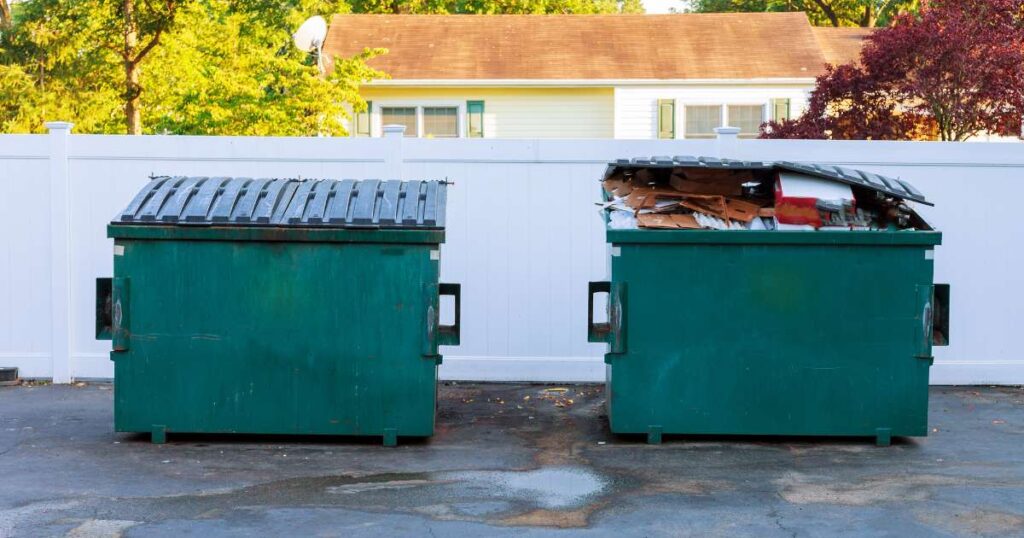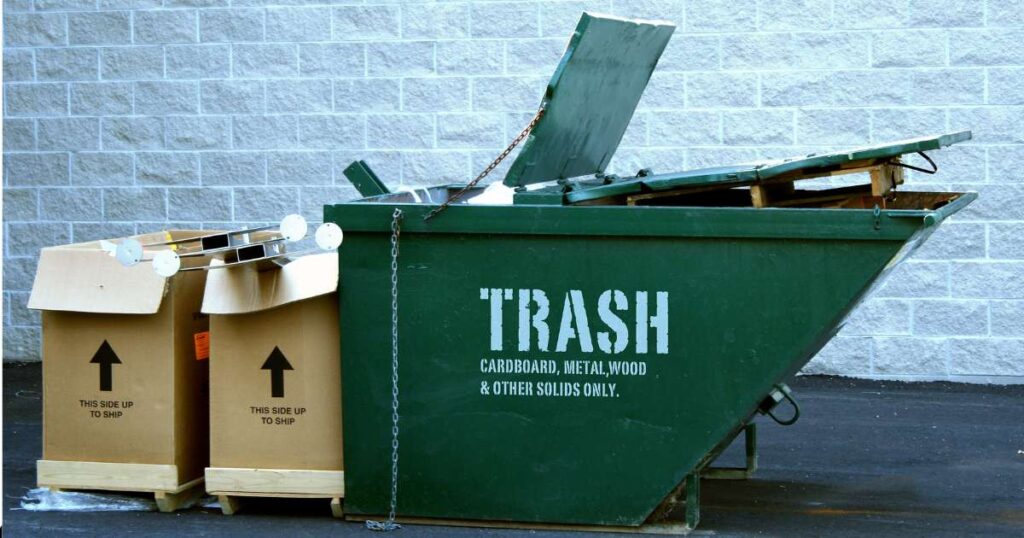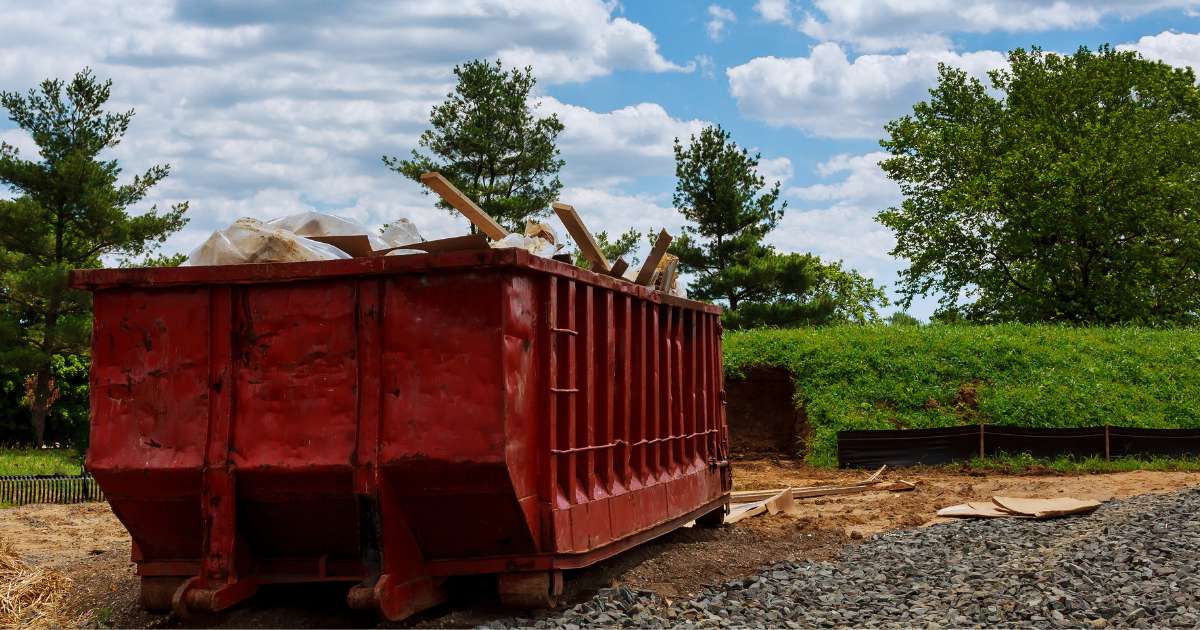When tackling a big project—whether it’s a home renovation, a major cleanout, or a large-scale construction job—renting a roll-off dumpster can be a game changer.
These versatile containers simplify waste management, making it easier to keep your project site clean and organized. However, before you dive into renting a roll-off dumpster, there are several important factors to consider.
Understanding these key details will help you make informed decisions, avoid common pitfalls, and ensure a smooth rental experience.
This guide provides everything you need to know, from selecting the right dumpster size and following safety guidelines to budgeting wisely and evaluating customer service.
Whether you’re new to renting dumpsters or have experience, these tips will help you manage waste effectively and make the most of your rental.
So, let’s explore the essential aspects of renting a roll-off dumpster to ensure your next project is a success.
Choosing the Perfect Dumpster Size
Selecting the right dumpster size can make a huge difference in how smoothly your project goes. Here’s a detailed breakdown to help you choose:
Small Roll-Off Dumpsters (10 to 20 Cubic Yards): These compact dumpsters are perfect for smaller projects. Use them for clearing out household junk, doing minor home repairs, or handling modest landscaping jobs. Their smaller size makes them easier to place and manage in residential areas.
Medium Roll-Off Dumpsters (20 to 40 Cubic Yards): Ideal for medium-sized commercial projects or larger home renovations. These dumpsters offer versatility, offering plenty of space for large amounts of debris while remaining easy to handle. They’re ideal for remodeling projects, extensive cleanouts, or even commercial renovations.
Large Roll-Off Dumpsters (40 to 60 Cubic Yards): These heavyweights are designed for big jobs. Whether you’re undertaking a major construction project, a large remodel, or a demolition, a large roll-off dumpster has the capacity to handle the volume of waste you’ll generate. They’re also great for moving large items or dealing with bulky debris.
Learn more about what size dumpster you need for a home renovation project and how different sizes fit various needs.

Safety First: Essential Considerations Before Renting
Safety is crucial when renting a dumpster. Here’s what you need to ensure:
Insurance and Liability Coverage: Verify that the rental company has up-to-date insurance and liability coverage. This protects you if accidents occur or damage happens during the dumpster’s delivery or use.
On-Site Safety Measures: Ask about the company’s safety protocols. How do they ensure that the area around the dumpster remains clean and safe? Are there specific procedures to protect surrounding trees, landscaping, or property during delivery and pickup?
Avoiding Damage: Consider potential risks like overhead obstacles, tight spaces, or sensitive landscaping features. Make sure the rental company is aware of these factors to avoid any mishaps.
Ensure you’re aware of the necessary permits for dumpster rentals and follow safety protocols to protect your site and property.
Budget-Friendly Tips for Dumpster Rentals
Managing your budget effectively is key. Here’s how to make sure you get the best deal:
Pricing Flexibility: Discuss the rental company’s pricing structure. Some may offer flexible rates based on your project’s duration or size. Be aware of any minimum size requirements, which could influence the cost.
Weight Limits and Extra Fees: Inquire about weight limits for the dumpster. Going over the weight limit may incur extra charges. Also, check for any location-based restrictions or additional fees for placing the dumpster in a non-standard area.
Additional Charges: Understand the terms for any potential additional charges. For example, some companies may charge extra for hazardous materials or for exceeding the maximum weight or volume.

Customer Service: The Importance of Good
Communication
A rental company’s customer service can make or break your experience. Here’s what to look for:
Clear and Prompt Communication: Ensure the company is responsive and provides clear information about the rental process. They should address your questions and concerns efficiently and effectively.
Service Guarantees and Reputation: Check if the company offers guarantees for their services. A solid reputation, evidenced by positive reviews and recommendations, is a good sign of reliable service.
Problem Resolution: Evaluate how the company handles issues. Have they been responsive to past customer complaints? A company with a track record of resolving problems is more likely to provide a smooth rental experience.

Location Matters: Considerations for Delivery and Pickup
Proper placement and access are crucial for an efficient dumpster rental:
Delivery Access: Confirm that the company can deliver the dumpster to your site. Some dumpsters are too large for standard parking spaces, so discuss alternative delivery points if necessary.
Placement Considerations: Choose a location that allows easy access for loading and unloading. Avoid placing the dumpster in areas that could obstruct traffic or create hazards for workers and vehicles.
Reputation Check: Research the company’s reputation through online reviews and local recommendations. A well-regarded company is more likely to provide reliable service and support.
Check our guide on placing a dumpster on the street and understanding dumpster delivery terms.
High-Quality Service: Ensuring Consistent Support
Look for a company that prioritizes excellent service:
Dependability: Choose a company known for punctuality and reliability. They should be available to assist you throughout the rental period and handle any issues that arise promptly.
Customer-Centric Approach: A company that values customer satisfaction will be attentive to your needs and provide consistent, high-quality service.
Key Considerations for Dumpster Placement
Proper placement is essential for efficient dumpster use:
Concrete Slabs and Access Panels: If placing a dumpster on a concrete slab, consider installing an access panel beneath any nearby doors to prevent damage. This helps avoid potential issues with door operation and floor integrity.
Traffic and Accessibility: Place the dumpster in an area with heavy traffic or where it will be easily accessible for loading and pickup. Avoid spots that could block driveways, streets, or create obstacles for pedestrians and vehicles.

Understanding Dumpster Rental Pricing
Dumpster rental costs can vary based on several factors:
Dumping Fees: Fees can differ depending on your location and the type of material being disposed of. For instance, asphalt disposal often costs more than concrete.
Calculating Costs: To estimate rental costs, multiply the dump rate by the size of your load. For example, if the rate is $40 per cubic yard for a 30-cubic-yard dumpster, the total cost would be $1,200.
Review Terms and Conditions: Before signing the rental agreement, carefully review all terms, including potential additional charges, deposit policies, and refund options. This helps avoid unexpected costs and ensures you understand the rental terms.
Pro Tips to Avoid Common Issues
Avoid common pitfalls with these practical tips:
Choose a Larger Dumpster: If you’re moving into a new home or apartment, select a dumpster that’s at least 40-50% larger than your current trash container. This prevents the dumpster from getting stuck and ensures it fits through doorways.
Optimal Placement: Place the dumpster in the driveway for easy access. Ensure it’s positioned away from the street or driveway to prevent obstruction and ensure safe loading.
Maintain Cleanliness: Regularly check the dumpster for any damage, such as broken or bent metal pieces. Keeping the dumpster clean helps prevent safety hazards and ensures smooth operation. With these detailed tips and considerations, you’re well-equipped to handle your dumpster rental with confidence, ensuring a smooth and efficient process for your next project.
Frequently Asked Question
How do I choose the right size dumpster?
The right size depends on the volume of waste you need to dispose of. Small dumpsters (10 to 20 cubic yards) are ideal for minor home projects and cleanouts. Medium dumpsters (20 to 40 cubic yards) are suitable for larger renovations or commercial projects. Large dumpsters (40 to 60 cubic yards) are best for major construction or demolition jobs.
How much does renting a roll-off dumpster cost?
Costs vary based on location, dumpster size, and the type of material being disposed of. Typically, you’ll pay a flat rental fee plus dumping fees, which can be based on weight or volume. Always ask for a detailed quote and review the terms to understand all potential costs.
What items can I put in a roll-off dumpster?
You can generally dispose of most non-hazardous materials like household junk, construction debris, and yard waste. However, some items may be prohibited, such as hazardous materials (paints, chemicals), electronics, and certain types of large appliances. Check with your rental company for a list of accepted and prohibited items.
How long can I keep the dumpster?
The rental period can vary depending on your needs and the rental company’s policies. Typically, rentals last from a few days to a few weeks. If you need the dumpster for a longer period, discuss extension options with your rental company.
What should I do if the dumpster is full before my project is finished?
If your dumpster fills up before you’re done, you can arrange for the rental company to pick it up and deliver a new one. This may involve additional fees for the extra pickups and deliveries, so check with your provider about their policies.
Can I place the dumpster on the street?
In many cases, placing a dumpster on the street requires a permit from your local municipality. Some areas have specific regulations regarding dumpster placement. Check with your local government or the rental company for guidance and to ensure you comply with local regulations.
What if I accidentally damage the dumpster or surrounding area?
If you damage the dumpster or the area where it’s placed, you may incur additional charges. It’s important to take precautions to avoid damage and communicate with your rental company if any issues arise.
Conclusion
Renting a roll-off dumpster is a practical solution for managing large amounts of waste from various projects, whether it’s a home renovation, a major cleanout, or a construction job.
By understanding the different sizes available, considering safety and budget factors, and choosing a reputable rental company, you can ensure a smooth and efficient waste management process.
Make sure to assess your project needs carefully, select the appropriate dumpster size, and review all rental terms to avoid unexpected costs.
With the right preparation and knowledge, a roll-off dumpster can make your project more manageable and less stressful, providing a convenient way to handle debris and keep your work area clean and organized.
